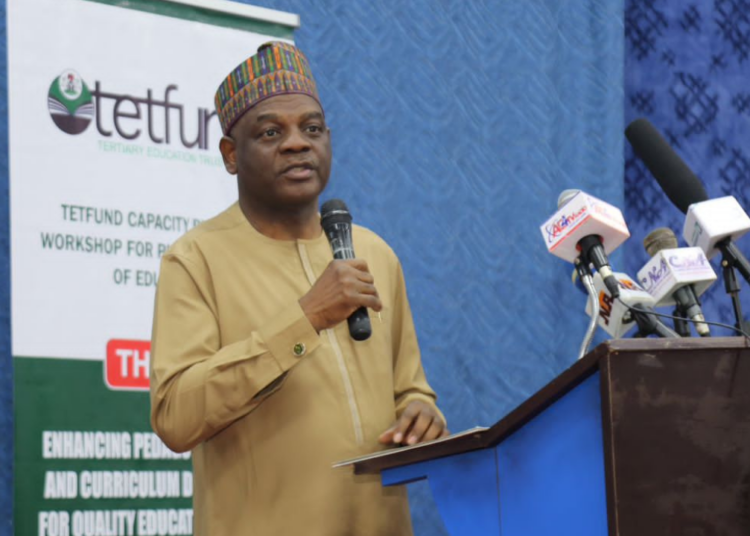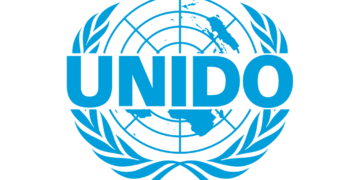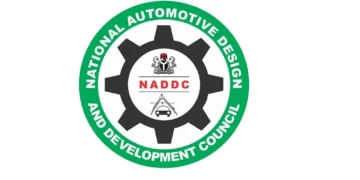The Executive Secretary of the Tertiary Education Trust Fund (TETFund), Arc. Sonny S. T. Echono, has warned that Nigeria’s universities must embrace digital transformation or risk being left behind in the race for global competitiveness.
Delivering the 15th Convocation Lecture of Osun State University, Osogbo, he declared that technology is not merely an add-on but the very foundation of the future of higher education.
In his words, “Digital transformation is no longer a matter of choice; it is the lifeline for Nigeria’s higher education and the future of our graduates.”
Echono described the 21st century as an age driven by artificial intelligence, big data, robotics, and a borderless flow of information where knowledge is the real currency of nations.
He noted that Nigeria cannot afford to remain on the sidelines while other countries deploy technology to power education, innovation, and economic growth.
“Technology has become the currency of global competitiveness. For our institutions to remain relevant, they must embrace digital tools that will build skills, foster innovation, and make our graduates employable in a knowledge-driven economy.”
The TETFund boss was emphatic that universities that resist change will become irrelevant in a world where employers demand digitally fluent graduates, where research visibility depends on digital platforms, and where nations no longer compete with natural resources alone but with ideas and innovation.
Echono highlighted examples across Africa and within Nigeria to show what is possible when education embraces technology. He praised Rwanda’s strides in digital learning through its laptop-per-child programme and partnerships with international institutions, saying the East African nation had “offered a roadmap for countries like Nigeria that want to leapfrog into the digital economy.”
At home, he pointed to the University of Lagos, where Microsoft-supported hubs and membership in the Afretec Network are equipping students with digital skills that meet global standards. He said Nigeria already have institutions within it showing what is possible, adding that the country must multiply these efforts across the entire system.
Speaking further, Echono acknowledged that significant obstacles remain as poor internet penetration, unreliable electricity supply, outdated curricula, and lecturers who lack digital teaching skills continue to hold back the education system.
“We cannot pretend that we are not constrained. Without investment in infrastructure, faculty training, and policy consistency, our ambitions will remain mere rhetoric,” warning that any digital agenda that fails to address these systemic challenges will struggle to take root.
Despite these hurdles, Echono struck an optimistic note by underscoring TETFund’s own interventions. He pointed to the Tertiary Education Research and Applications System (TERAS), a platform designed to give Nigerian academics access to global research databases, plagiarism detection tools, and digital repositories. “With TERAS, our scholars can collaborate globally, our students can learn on modern platforms, and our universities can showcase research that will be cited around the world,” he said.
He also noted the Fund’s investment in smart classrooms, training programmes for lecturers, and partnerships with innovation hubs aimed at translating research into industry-ready solutions.
Throughout the lecture, he returned to the issue of graduate employability, linking it directly to digital readiness. According to him, Nigerian graduates cannot hope to thrive in the modern economy without digital fluency.
“If we leverage technology wisely, our graduates will not only find jobs but create them. They will not only compete globally but lead globally.”
Echono urged the government to sustain policy support for digital education, universities to modernize their curricula and facilities, and industries to deepen collaboration with academia.
For students, he emphasised adaptability, lifelong learning, and readiness to use technology as a tool for problem-solving. “Digital transformation is the bridge between our present limitations and future opportunities. It is the key to building a resilient, innovative, and prosperous Nigeria,” he added.




